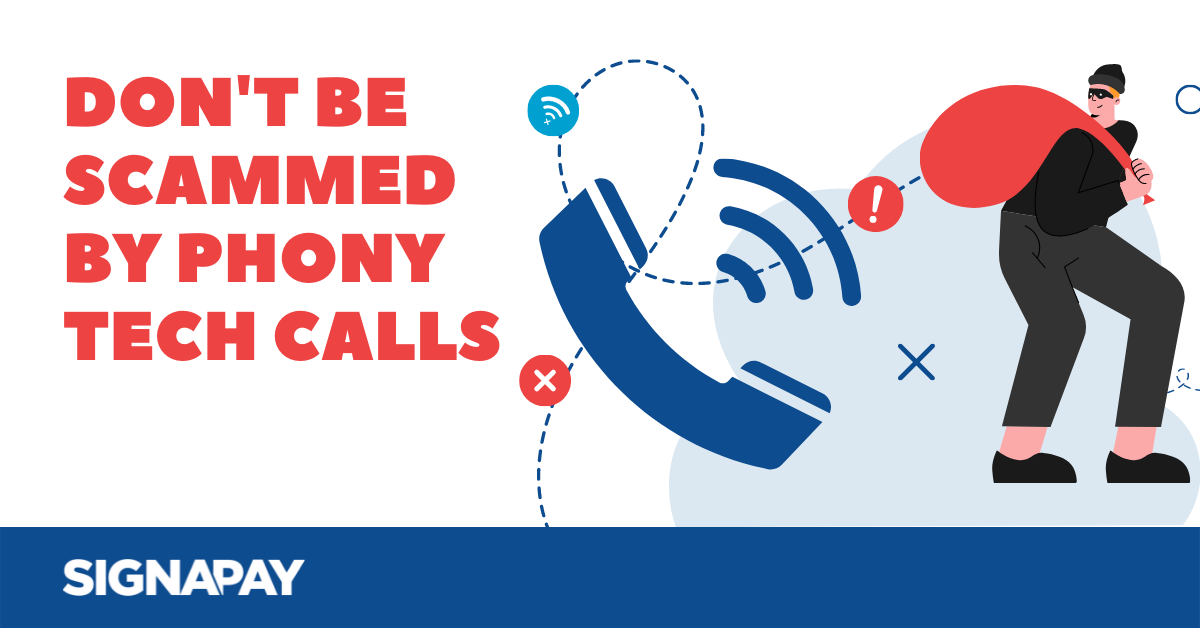Don’t Be Scammed by Phony Tech Support Calls

How scammers are trying to get into your computer over the phone.
When we think of cyber security, we often think about anti-virus software and password management, but did you know another threat lurks around the corner when it comes to computer security? Did you know it was your phone?
Scammers have been peddling phony security software for years, but now they’ve taken to cold calling people to sell their wares. It starts when they get your contact information from a public directory and call you pretending to be well-regarded technology company like Microsoft, Google or Apple. They will try to confuse their victim over the phone with overly technical jargon and sometimes ask to remotely access your computer, ask for passwords, and ultimately, tell you that their software will be the only way to save your computer. They might even try to get you to install software that can be harmful for your computer, like malware, spyware or just even bogus software that does nothing.
These scams are gaining traction, especially with the rise of caller-ID spoofing, the practice of masking a phone number with one that appears legitimate. Here’s what you should do if you get a call you suspect is a scam call:
- Never allow remote access control to a third part who cold calls you.
- If the Caller-ID appears legitimate, don’t let it fool you! Caller-ID spoofing is a reality in our world today and scammers are getting clever.
- Sometimes searching online doesn’t always prove legitimacy. Scammers will setup ads, websites and review pages to make themselves appear legitimate. If you need tech support, start with PC manufacturer who have hotlines for basic support and can direct you to legitimate software companies.
- Scam tech support companies may try to ask you for credit card information. You should never give your credit card information to unknown “tech support” companies that call you without provocation.
- If you are feeling pressured into buying something or purchasing a subscription for software, just hang up the phone.
- Never share your password over the phone. Tech support companies will never ask for your password over the phone.
- If you have not listed your number into the National Do Not Call Registry, do so today. You can also report illegal sales calls to the FTC for violating the National Do Not Call Registry
Recent blog posts
The latest industry news, interviews, technologies, and resources
Ways to Prove Your Business Exists and Is Operating
Establishing your business’s legitimacy and operational status is crucial in various situations, from securing loans to building trust with clients and partners. But how do you provide concrete evidence that …
Ways to Grow Margins for Any Small Business
In the competitive landscape of today’s business world, small and medium-sized businesses (SMBs) face the constant challenge of maximizing profit margins to ensure sustainability and growth. To thrive in this …
SMBs and Social Media Marketing
Marketing your small business can feel like a daunting task. However, one of the small businesses’ easiest marketing methods is Social Media Marketing. Social media allows you to connect directly …